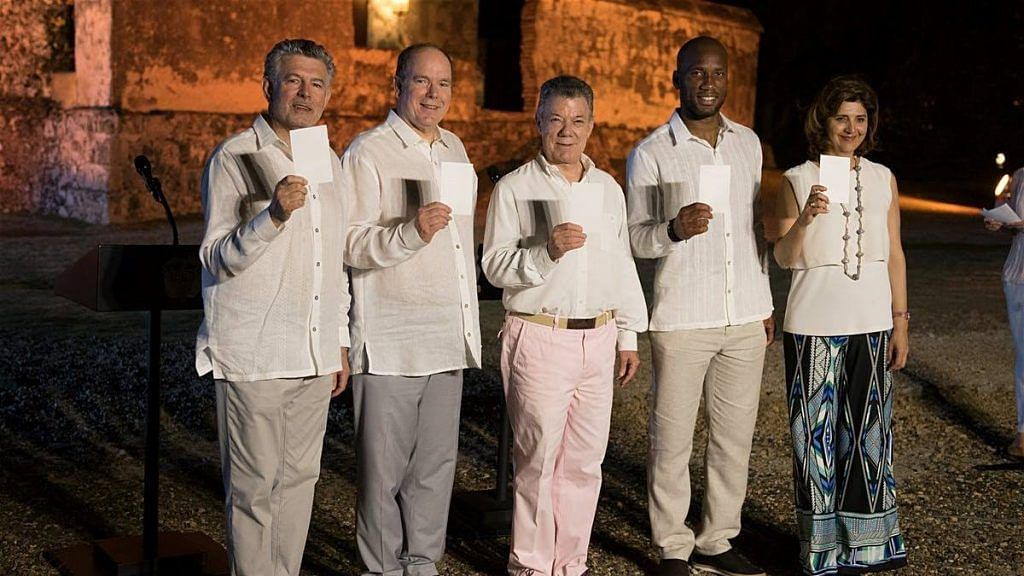On 6 April 2022, Arman, an 11-year-old boy in Islamabad and Riaan, an eight-year-old in Kolkata, raised White Cards to each other in support of the International Day of Sport for Development and Peace. In doing so, the boys weren’t making a gesture of peace and friendship just towards each other but for their countries and the world as well.
The heartwarming video shared on social media was one among millions of #WhiteCard photos and videos posted that day as symbolic gestures calling for peace through sports around the globe. Participants included world champions, Olympic champions, sportspersons, and fans.
In 2013, the United Nations General Assembly created a historical link to the first modern Olympic Games of 1896 by declaring 6 April as the International Day of Sport for Development and Peace. The day has been celebrated annually since 2014.
#WhiteCard is a reference to the yellow and the red card in the sporting world. It “invites not to punish but to promote peace,” says the Peace and Sport initiative founded by modern pentathlon Olympic medallist and world champion Joël Bouzou in 2007. Prince Albert II of Monaco is the organisation’s patron.
The call for participation in the initiative this year refers to the long hug that Oleksandr Abramenko of Ukraine gave to his competitor, Ilia Burov of Russia, after winning the first medal for his country in the freestyle ski jumping contest at the Beijing Olympics.
This ‘symbolic embrace on the podium’ went largely unnoticed. A few days later, Russian tanks rolled into Ukraine. In this scenario, says Peace and Sport, to forget the embrace between Abramenko and Burov “would be a failure to recognise the power of sport to bring people together and to cross boundaries”.
Sports, children, and peace
Sports can move human minds to think of peace. Unless the world thinks of peace, we will not be able to bring positive social changes to the world.
As it is important in sports to train participants when they are young, in peace-building too, it is important to teach children about peace before someone else teaches them about hate and violence. We need to catch them young here too.
There is perhaps no more powerful tool to educate about peace than sports.
With the ICC T20 Men’s Cricket World Cup scheduled to take place in Australia in October this year, this is as good a time as any to support the work being done on this issue.
The opening Super 12 match will feature India and Pakistan taking on each other. Bangladesh is already in the pool that Sri Lanka might also be in, depending on their performance in the qualification round.
Can we rally support in South Asia for the event and get friends and fans to raise their #WhiteCards for peace even as they root for their favourite teams?
As Nelson Mandela famously said, “Sport has the power to change the world. It has the power to inspire. It has the power to unite people in a way that little else does. It speaks to youth in a language they understand. Sport can create hope where once there was only despair.”
Rahul Mukherji is an entrepreneur and management consultant in Kolkata, India, who actively advocates sport and Olympic values as a tool for peace. Beena Sarwar is a journalist and editor from Pakistan based in Boston. This is a Sapan News syndicated feature. Views are personal.
